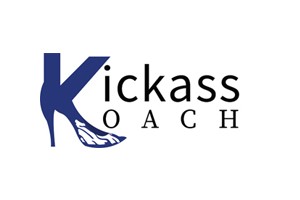Listen to Other Episodes of the Kickass Koach –
ImpactBank’s – the Kickass Koach is on i-Tunes AND you can always find the most recent episodes on ImpactBank’s main website page with a link to iTunes to make it easier for you to subscribe. Of course the podcast link on the website navigation bar also takes you to all episodes.
ImpactBank’s The Kickass Koach podcast supports senior leaders who want to quickly master the art and practice of leadership while stepping into a new assignment. When you were promoted into a senior position, if you’re like most people, you were immediately excited b y the opportunity to really make a difference. You also soon realized the immense, even daunting, challenge ahead of you.
y the opportunity to really make a difference. You also soon realized the immense, even daunting, challenge ahead of you.
You quickly had feelings of being lost, overwhelmed and very alone. It is completely understandable – you need to find your leadership rhythm. We help you find your leadership presence – one that will both command a room and warm hearts so people want to follow you and exceed your expectations – then you will know what it feels like to really make an impact.
ImpactBank’s “ON YOUR MARK…” 3 month program focuses exclusively on the first 90-180 days in a new assignment to give you a positive start. ImpactBank’s “THE IMPACT BUMP” 18 month program is for leaders who want to take the ‘kick-start” to a whole new level. We exclusively work with leaders in their first two years in role so we bring resources designed specifically to support your thinking and development.
This Week’s Additional Recommendations:
Episode 38: The opening episode for this series where I explore why this information is so important for the senior leader.
Episode: 20: The opening episode to the series on Leadership and the Brain.
Active Series- BIAS
Each week I’ll play with the definition I use for BIAS for a few reasons; mainly as a means to make it easier to see bias when one inflicts itself on relationships, reactions and perspectives. By not getting too comfortable with my definition and allowing it to be more fluid and fun I am more apt to see the bias in real time. As leader you will do well to become closely aware of them.
Definition of BIAS – this week’s iteration
Biases are unconscious internal influences that determine how we see and experience the world.
THEY ARE essentially filling the invisible air we walk through – influencing and some times controlling us without our conscious awareness…
THEY were created within you for a very distinct purpose – helping your brain navigate the nuanced and complex dangers and challenges that face you every day without requiring much cognitive energy.
AND AS A RESULT, biases can impact every decision you make.
In the comment section share a variation of the definition that you think may offer a fun twist.
WHY SHOULD YOU CARE?
As the senior leader you are charged with specific deliverables and hopefully a clear mandate. Your biases and those held by members of your team will likely derail your efforts.
Just as you wouldn’t sit back and watch people in the office openly ridicule each other eroding morale or excessively socialize or goof-off when deadlines were looming or stakeholders (clients, patients,  community members etc) were negatively impacted, you wouldn’t knowingly allow biases to inflict their poison sabotaging your or your team’s efforts is your responsibility.
community members etc) were negatively impacted, you wouldn’t knowingly allow biases to inflict their poison sabotaging your or your team’s efforts is your responsibility.
It is not easy and it is essential you show yourself and your team some compassion when BIASES raise their ugly head AND you will make a major and positive impact when you start to develop strategies to take away the power the biases have.
This Week’s BIAS
Confirmation Bias: the tendency to interpret new evidence as confirmation of one’s existing beliefs or theories.
This bias will prevent you, as a leader from considering important information in making key decisions.
A few questions to ask yourself:
- How is Confirmation Bias blinding you from seeing new ways of doing things? Eroding innovation?
 When is Confirmation Bias keeping your office stuck in the past and mired in a regulatory cycle of blame?
When is Confirmation Bias keeping your office stuck in the past and mired in a regulatory cycle of blame?- What if you could harness the moments when Confirmation Bias holds you back with a series of standard questions you and your senior team ask once a week, or month to put checks and balances on your limiting beliefs?
“Our current problems will not be solved at the level of thinking with which they were created.” A. Einstein
This Week’s Story
Years back when I was the President/CEO of a boutique healthcare school in downtown Toronto, we had to answer to two strict regulatory bodies, the provincial education ministry and the national professional accrediting board. The second was the more onerous in many ways. One year when we were thoughtfully reviewing the shift in the accreditation requirements and ensuring we were adhering to the new requirements while reviewing our documentation in preparation for the following years accreditation audit/review, the Program Director resigned her position.
I had hand picked this Program Director and I respected, appreciated even valued her unique gifts and skills and I enjoyed working with her. I was shocked at the limited notice she gave especially given the circumstances. I approached her about expanding her notice period or considering working part-time over a period of time to ensure the team was supported in the preparation and redesign she had started on some of our processes. She wasn’t accepting a new position – she was planning to take a year off. She refused my request. Not only did she refuse – she laughed at me and said something like, ” Come-on Rox, I’ve always told you that I do what is best for ME – I’m a princess essentially – so that isn’t going to work for ME”
I had to admit she had said those things over the years. I had always appreciated the humor and didn’t believe there was any truth to it. BIG MISTAKE. My trust and respect for her kept me from seeing that she was telling me what I could expect when the going got tough. This isn’t my approach EVER – I am not a martyr by any means but I have always looked to be fair in these types of situations. Because this was a value of mine and I respected this person, I expected the same from her. My confirmation bias left me ill prepared for her quick departure.
In the podcast I promised to share more about Frequency Illusion which has some relationship to Confirmation Bias. It’s the phenomenon in which people who just learn or notice something start seeing it everywhere. For example, a person who is reading a book about “flow” or “mindset” will start to hear people talking about those concepts everywhere. This is not necessarily because the person really has come across more instances of either “flow” or “mindset”; rather, before getting immersed in the particular book, they usually simply didn’t focus on the conversations about the subject matter OR quickly forgot it, while later, after having read the book, the concepts started sticking in their conscious memory.
This Week’s EXTRA BIAS
False Consensus Effect is defined as your tendency to overestimate the extent to which others agree with you; the tendency to assume that your beliefs, habits, and opinions are “normal” and that others think the same way.
While the story I told for Confirmation Bias could be extended to explain this bias as well I have another.
A little more than a year ago on a Sunday morning I noticed an post on Facebook that caught my interest – it was about Canadian Tennis Star Eugenie Bouchard – here’s the link. I sent the link via private message in FB to a friend suggesting this would be a great point for discussion for a group he and I met with monthly to talk about interesting brain related human experiences. I wrote him saying “I think it may be cool to explore in Big Brains how our brain reacts to these moments….an interesting thing to explore…let’s chat about it.” He wrote back (I edited some out) “The impact depends a lot in the culture. And she was very nice in her attitude….It was a compliment.” It took my breath away and I remember taking some time before responding again…two days later I wrote back, “I had to laugh as I reflected on our exchange…me thinks our biases were showing!….Bias, group think the impact of … our chosen tribes and more come to the surface in a conversation around this story!”
The next time I had coffee with this friend we discussed it further and I made a sweeping comment about the Western World and the general outrage to these practices. He stopped me sharply and clarified that I was mistaken – it was not the entire Western World. He had lived in Europe for many years and was adamant that they didn’t view this behavior as sexist or inappropriate. I was clearly stuck in False Consensus Effect. While he may have had his own biases charged in this conversation – I’ll leave those for another day.
A Few Things You Can Do
A few ideas on what a leader could do to mitigate the potential damage.
- Make a practice of asking more questions and soliciting input from someone who isn’t on the team – one of my clients sometimes checks in with the front desk or holds an impromptu focus group with a group of random workers during their lunch break. She usually shares a story that resembles her quandary and asks their opinion.
- Sleep on it.
 There’s a reason this is a cliche. When we take a bit of extra time it can give us much needed perspective. It DOES matter what you do with this time.
There’s a reason this is a cliche. When we take a bit of extra time it can give us much needed perspective. It DOES matter what you do with this time. - Challenge your own assumptions. Especially on the things that can really create pain or loss. For example, had I listened to my Program Director and believed her I would have thought to protect the business and program from potentially losing her at an inopportune time. Given I know about this bias it would be wise to realize I am going to expect people to behave in ways they may not.
- When making a tough decision consider past related decisions and look for your patterns and biases then and then consider whether you are repeating them.
- Listen to yourself. When do you speak in certitude and what are the assumptions that are driving this?
We both know that as a leader you feel pressure to make quick decisions that please everyone. ONLY when you recognize the impact bias is having on your perspective and decisions will you be able to mitigate the potential damage by establishing checks and balances. Taking a bit more time may annoy people even create some problems for you in the short term AND consulting and reflecting just a bit more before decisions will actually get you where you want to go more quickly.
more time may annoy people even create some problems for you in the short term AND consulting and reflecting just a bit more before decisions will actually get you where you want to go more quickly.
When you have a leadership perspective EVERYTHING will change
Don’t let bias cloud your judgment.
NEXT TIME: When is a bias pulling you under water and suffocating your choices and clouding your options?
ImpactBank Diversity Program: The Diversity Dividend
Would you or your organization benefit?
We tailor the program to the organization’s and leader’s specific needs and current challenges.
Are there conflicts that persist between stakeholder groups or within specific work groups?
Do you routinely experience poor compliance rates? (In other words, are there requirements that workers just fail to meet on a regular basis? Do you have poor attendance or high attrition rates? Are there constantly mistakes made in working with stakeholders? Are acceptable levels of service only met by some members of the team or not consistently across the team?)
Do you find yourself frustrated because you have to say the same things over and over and you can’t get people to take critical requirements seriously?
Are there conflicts bubbling beneath the surface? Are you and your team tripping over biases and failing to achieve the required outcomes?

